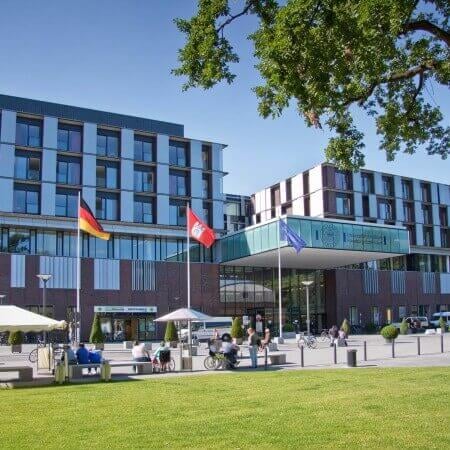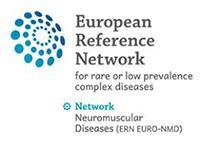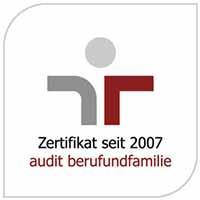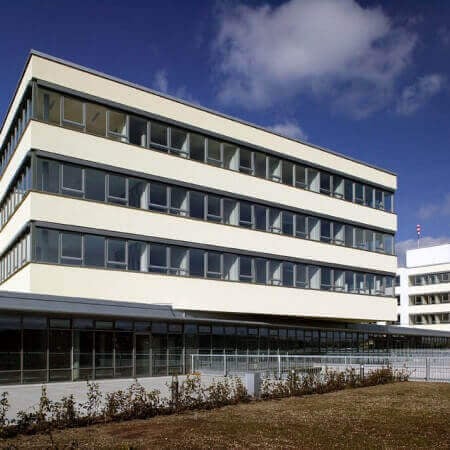Diverticulitis is an inflammation of a diverticulum that can lead to bowel perforation and severe complications. The condition develops due to diverticulosis, which is the presence of protrusions in the colon wall. If you have an acute or chronic form of this disease, you can undergo your treatment of diverticulitis in Germany. The specialists from the Booking Health company will help you select the most suitable clinics in Germany and arrange your trip.
Content
- Conservative treatment
- Surgical treatment
Diverticulitis is treated with antibiotics, diet, and antispasmodics. Some patients require an endoscopic arrest of bleeding. If a patient has any complications, doctors perform abscess puncture aspiration or surgery, namely bowel resection or fistula resection.
It is best to treat your diverticulitis at the University Hospital Duesseldorf, the University Hospital of Ludwig Maximilian University of Munich, or the University Hospital Ulm.
Do not hesitate to leave your request on the Booking Health website to undergo your diverticulitis treatment at one of the German clinics. We will take care of all the arrangements for your trip. Our specialists will help you select a clinic, book hotel and airline tickets for you, and arrange your transfer from the airport to the clinic and back. We will provide you with an interpreter and support throughout your stay in Germany.
Conservative treatment
Most uncomplicated forms of colon diverticulitis can be treated with conservative methods. The therapy may include the following:
- a slag-free diet implies the consumption of a minimum amount of fiber, and the diet consists of almost completely digestible foods, such as meat, bread, pasta, fish, and dairy products;
- laxatives;
- antispasmodics for pain relief;
- antibiotics for infection suppression (required in the case of the development of pericolic phlegmon).
In 70% of cases, conservative treatment leads to recovery. The remaining patients develop complications, or the acute form of diverticulitis becomes chronic.
A treatment regimen for the chronic form of the disease is similar, but antibiotics are often replaced with intestinal antiseptics. These are antimicrobials that are not absorbed in the digestive tract but work only in the intestinal lumen. Once acute inflammation is eliminated, the slag-free diet will be canceled. A patient will be advised to consume more fiber and water to relieve constipation. Antispasmodics can be used only on demand if a person suffers from pain.
Some patients require endoscopic treatment. Hemostasis or balloon dilatation for colon stricture are two examples.
Surgical treatment
Patients with acute diverticulitis complications and ineffective drug therapy for chronic diverticulitis can be treated with surgical methods.
Acute diverticulitis may become perforated. This means that a through hole has formed in the intestine. The result is the formation of an abscess in the abdominal cavity and the development of peritonitis.
Treatment options include the following:
Abscess puncture aspiration is a minimally invasive procedure that can only be performed if there is an abscess without peritonitis that is up to 3 cm in size and located near the intestinal wall. A doctor inserts a needle into the abscess cavity, evacuates the pus, and injects antiseptics. The procedure is performed under ultrasound or CT guidance. In one out of three patients, abscess puncture aspiration avoids surgery. In other cases, the disease progresses or resolves with the formation of a fistula (a through channel leading into the abdominal cavity), which subsequently requires surgical removal.
Bowel resection is a standard surgical procedure for perforated diverticulitis. The doctor dissects the colon above and below the diverticulum. The ends cannot be sutured together immediately due to the inflammation. Doctors create a stoma (a hole that opens in the abdomen) and perform a second operation a few months later to close the stoma. The surgeon sutures the intestines together, returning patients' ability to self-defecate.
Indications for surgery for patients suffering from chronic diverticulitis are the following:
- fistulas;
- strictures (cicatricial narrowing);
- ineffectiveness of drug therapy (progression of the disease during treatment or frequent recurrences);
- suspicion of bowel cancer if it cannot be excluded in another way.
During the operation, doctors excise fistulas or remove the problematic part of the bowel, which contains constantly inflamed diverticula. German doctors avoid excessive tissue removal. If there are diverticula in the intestine that do not become inflamed, there is no need to resect this part of the intestine.
You can visit hospitals in Germany to undergo your diagnostics, treatment, and rehabilitation. On the Booking Health website, you can find out the cost of treatment, compare prices at different medical centers, and choose a medical care program at the best price.
Authors:
The article was edited by medical experts, board-certified doctors Dr. Sergey Pashchenko and Dr. Nadezhda Ivanisova. For the treatment of the conditions referred to in the article, you must consult a doctor; the information in the article is not intended for self-medication!
Sources:
MedicineNet
NHS
Sience Direct




















